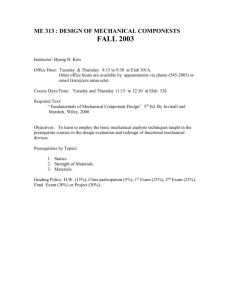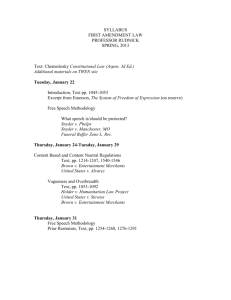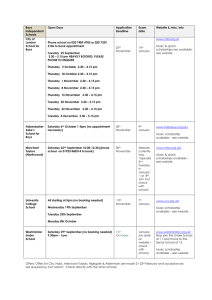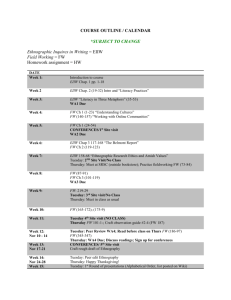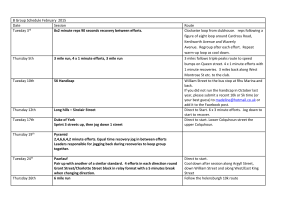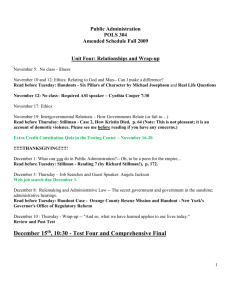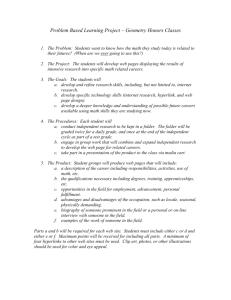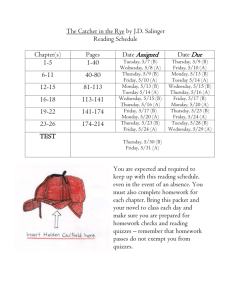MLD-719M C: Advanced Writing for Policy and Politics
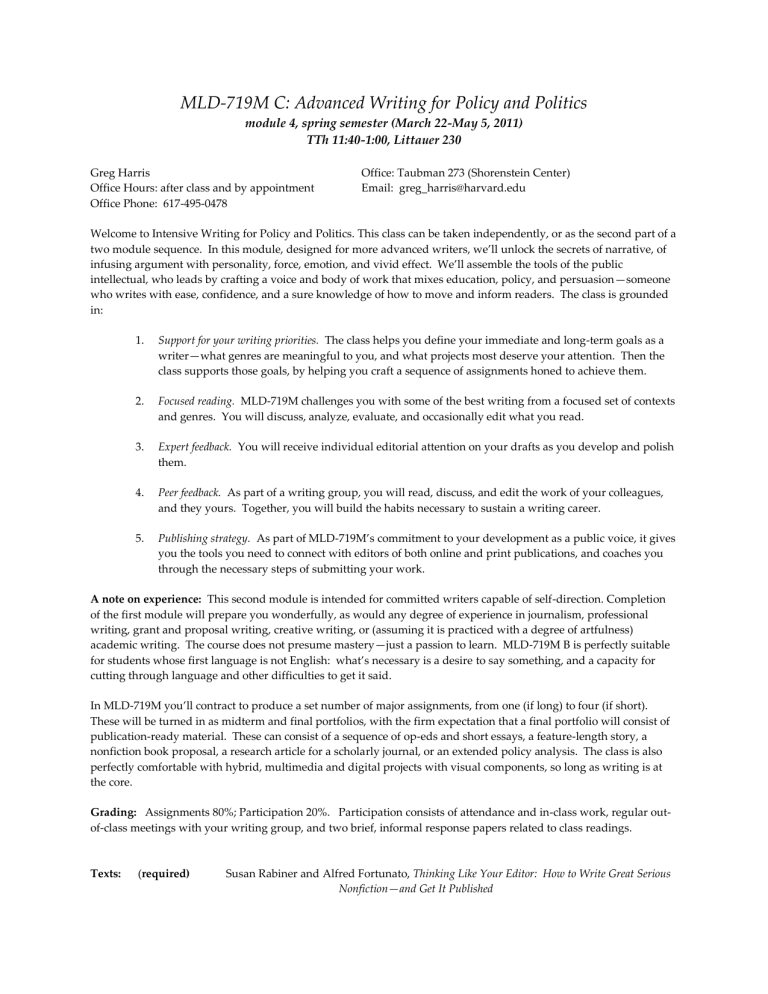
MLD-719M C: Advanced Writing for Policy and Politics
module 4, spring semester (March 22-May 5, 2011)
TTh 11:40-1:00, Littauer 230
Greg Harris Office: Taubman 273 (Shorenstein Center)
Office Hours: after class and by appointment
Office Phone: 617-495-0478
Email: greg_harris@harvard.edu
Welcome to Intensive Writing for Policy and Politics. This class can be taken independently, or as the second part of a two module sequence. In this module, designed for more advanced writers, we’ll unlock the secrets of narrative, of infusing argument with personality, force, emotion, and vivid effect. We’ll assemble the tools of the public intellectual, who leads by crafting a voice and body of work that mixes education, policy, and persuasion—someone who writes with ease, confidence, and a sure knowledge of how to move and inform readers. The class is grounded in:
1.
Support for your writing priorities. The class helps you define your immediate and long-term goals as a writer—what genres are meaningful to you, and what projects most deserve your attention. Then the class supports those goals, by helping you craft a sequence of assignments honed to achieve them.
2.
Focused reading. MLD-719M challenges you with some of the best writing from a focused set of contexts and genres. You will discuss, analyze, evaluate, and occasionally edit what you read.
3.
Expert feedback. You will receive individual editorial attention on your drafts as you develop and polish them.
4.
Peer feedback. As part of a writing group, you will read, discuss, and edit the work of your colleagues, and they yours. Together, you will build the habits necessary to sustain a writing career.
5.
Publishing strategy. As part of MLD-719M’s commitment to your development as a public voice, it gives you the tools you need to connect with editors of both online and print publications, and coaches you through the necessary steps of submitting your work.
A note on experience: This second module is intended for committed writers capable of self-direction. Completion of the first module will prepare you wonderfully, as would any degree of experience in journalism, professional writing, grant and proposal writing, creative writing, or (assuming it is practiced with a degree of artfulness) academic writing. The course does not presume mastery—just a passion to learn. MLD-719M B is perfectly suitable for students whose first language is not English: what’s necessary is a desire to say something, and a capacity for cutting through language and other difficulties to get it said.
In MLD-719M you’ll contract to produce a set number of major assignments, from one (if long) to four (if short).
These will be turned in as midterm and final portfolios, with the firm expectation that a final portfolio will consist of publication-ready material. These can consist of a sequence of op-eds and short essays, a feature-length story, a nonfiction book proposal, a research article for a scholarly journal, or an extended policy analysis. The class is also perfectly comfortable with hybrid, multimedia and digital projects with visual components, so long as writing is at the core.
Grading: Assignments 80%; Participation 20%. Participation consists of attendance and in-class work, regular outof-class meetings with your writing group, and two brief, informal response papers related to class readings.
Texts: (required) Susan Rabiner and Alfred Fortunato, Thinking Like Your Editor: How to Write Great Serious
Nonfiction—and Get It Published
Course packet, available from the Course Materials Office.
(recommended) Joseph M. Williams, Style: Basic Lessons in Clarity and Grace (any ed.)
Arthur Plotnik, Spunk & Bite
SCHEDULE OF CLASSES
Tuesday, March 22
The Query, the Proposal, the Prospectus: anticipating an audience, an editor, an impact
Storytelling: Suspense, Surprise, Specificity, Sizzle, and Satisfaction
Thursday, March 24
Thinking Like Your Editor, excerpt
“Query Letter Clinic,” from Writer’s Market
PROSPECTUS due, Sunday, March 27
<Initial Meetings March 30-April 1>
Tuesday, March 29: THE ESSAY in its guises: Academic, Professional, Personal
Carl Klaus, “Essayists on the Essay”
Madigan, et al., “APA Style as Epistemology”
Marianna Torgovnik, “Experimental Critical Writing”
Thursday, March 31: The Overture: Connecting with Audience, Setting the Contract. Horizontal and Vertical
Development
Michael Pollen, “Power Steer”
Atul Gawande, “The Case of the Red Leg”
Steven Levitt and Stephen Dubner, “Schoolteachers and Sumo Wrestlers” from Freakonomics
Tuesday, April 5: Creating Presence, with and without the Personal
Amy Tan, “Mother Tongue”
Diane Ackerman, “The Truth About Truffles”
Jeremy Miller, “Tyranny of the Test”
Thursday, April 7: Handling Complicated Subjects
Matt Taibbi, “The Great American Bubble Machine”
Michael Lewis, “The End of Wall Street”
MIDTERM PORTFOLIO DUE, Sunday, April 10
<Conferences April 11-15>
Tuesday, April 12: Disarming Critics with Unconventional Approaches
Atul Gawande, “The Cost Conundrum”
Stephen J. Gould, “Creation Myths of Cooperstown”
Thursday, April 14: Persuasion: Changing Minds, down to the Cellular Level
W.S. Merwin, “Unchopping a Tree”
Joseph Stiglitz, “The Economic Consequences of Mr. Bush”
[optional] Lakoff, Metaphors We Live By
Tuesday, April 19: REVISION, EDITING, FEEDBACK
Thinking Like Your Editor, excerpts
Thursday, April 21: Group Workshops
Tuesday, April 26: Group Workshops
Thursday, April 28: Group Workshops
FINAL PORTFOLIO DUE May 5
<Conferences May 9-12>

